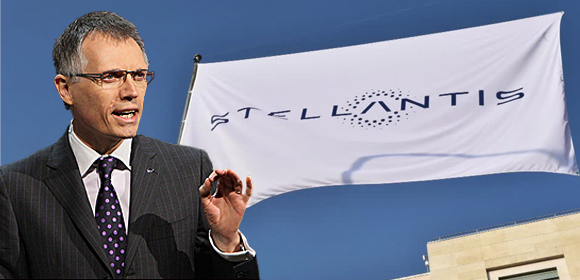French Courts Go After Citroën in Dieselgate

Citroën was charged today by French authorities over allegations of “deception” related to the sale of Euro 5 diesel vehicles in France between 2009 and 2015, its parent company Stellantis said in a statement.
The brand becomes the fourth automaker to reveal this week that it has been charged in France in connection with the “dieselgate” emissions cheating scandal. Peugeot was charged earlier in the week along with rival Renault and Germany’s Volkswagen.
Fines, legal fees and vehicle refits, recalls and compensation have already cost VW some 32 billion euros while other brands, including Fiat Chrysler, BMW, Porsche and Daimler have also been caught up in the “Dieselgate” affair.
The scandal erupted in 2015 when a US investigation revealed that VW had equipped around 11 million vehicles with devices capable of lowering carbon dioxide emissions during tests, even though actual emissions could be up to 40 times higher.
In 2015 in France, Ségolène Royal, then Minister of the Environment, decided to set up a technical commission, responsible for measuring the polluting emissions of 52 diesel cars then being marketed. A report was published in the spring of 2016, which concluded that there was no evidence of cheating on the part of the brands whose cars were measured. As a result there was little fanfare and almost no media reporting of its findings.
Then in February 2017 France’s DGCCRF anti-fraud agency filed a report with the French justice system alleging that there was a “global strategy aimed at fabricating fraudulent motors and then commercializing them”. Investigators alleged that some 1.9 million Euro 5 diesel cars, “whose motors functioned using the fraudulent strategy”, were sold by Peugeot-Citroën in France between September 2009 and September 2015. While that report got attention, no charges were laid by the French at the time.
One has to wonder why the French courts are so late taking legal action, especially in these hard Covid economic times and in three of the 4 cases, prosecuting French companies the government have taken measures to support? Does the need for government revenue take precedent over the hardship such measures, if successful, will have on France’s automobile manufacturing sector? It would seem so…
The timing is very interesting in that it was announced just prior to the court’s action that Volkswagen will receive around $350 million (300 million euros) as part of a settlement with executives who ran the company during the Dieselgate emissions cheating scandal, after claiming they breached their “duty of care.” Former VW CEO Martin Winterkorn has agreed to pay the company 11.2 million euro ($13.6 million), while former Audi boss Rupert Stadler will pay Volkswagen $5 million 4.1 million euros). Volkswagen will also receive smaller amounts from two other managers who were implicated in the scandal. Most of the rest of the money — some $330 million (nearly 270 million euros) — will come from what’s known as “directors’ and officers’ insurance,” or D&O insurance, which normally helps protect executives from individual liability but can also be used to reimburse a company for legal fees and other costs.
The defense of VW though is different as the company has admitted to having cheated. According to the company’s French lawyer, “the proceedings against Volkswagen AG ended in Germany in 2018 with the payment of a fine of one billion euros for allegedly identical facts, including vehicles marketed in France”. In other words, VW seems to consider that it has already been punished and is absolved of further prosecution by the French government.
While Renault, Peugeot and Citroën maintain their innocence, the French court action requires Renault a provide a bank guarantee of $72.6 million (60 million euros) for potential damages claims, and it must pay $24 million (20 million euros) in bail, most of which will be earmarked for possible payouts and fines. Stellantis will have to guarantee that Peugeot and Citroën each pay $37 million (30 million euros) “for the potential compensation for losses”, as well as pay bail of $12.2 million (10 million euros), comprising $9.7 million (8 million euros) for potential damages and $2.2 million (2 million euros) for court representation.
It remains to be seen what impact these charges will have on Stellantis CEO Carlos Tavares, as he has been at the helm of Groupe PSA since March 2014.

It is to be expected that other manufacturers will announce, in the coming days, to have been indicted by the French courts for the same facts. With the brands of the former FCA group said to be on this “list”, such action will make it a rather difficult pressure point for Stellantis as it tries to be profitable with its French brands and sustain operations in France.

As long as Cruise Ships are allowed in (practically) Downtown Vancouver, we should not worry about diesels, period!